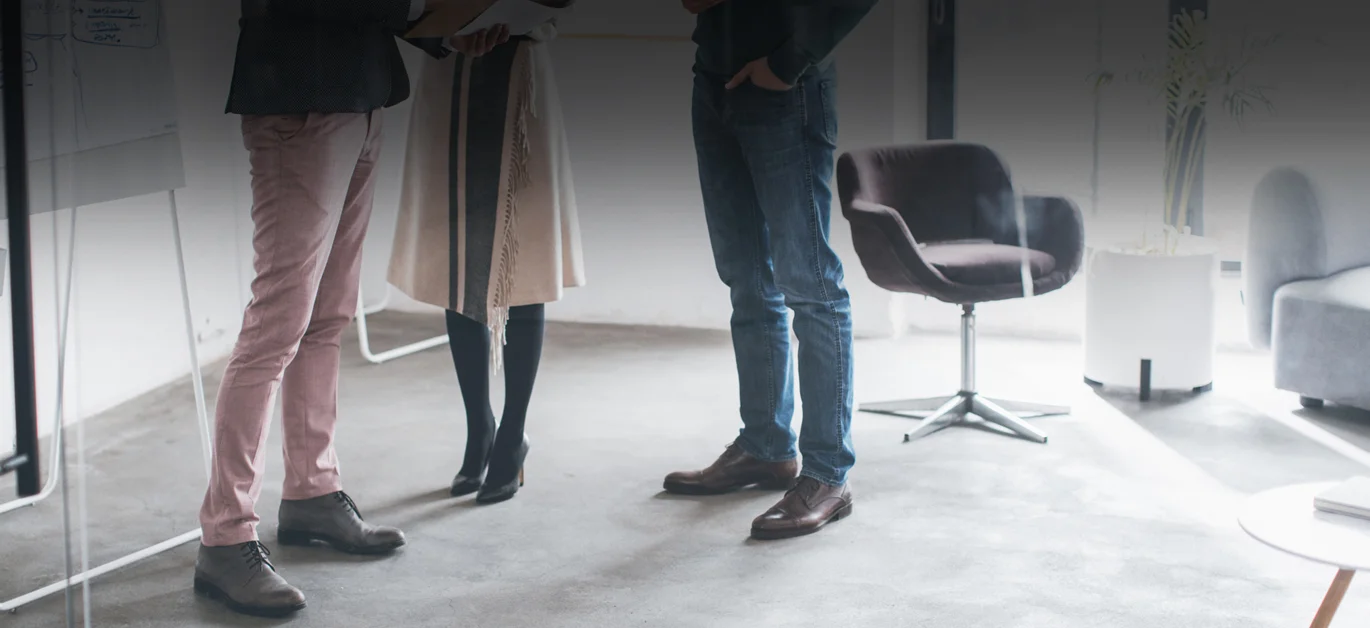
BLOG
Leading with Influence & Values: A Conversation with Patrick Flynn
In honor of Earth Day, I spoke with Patrick Flynn, climate change expert and former head of global sustainability at Salesforce, to learn how he embodies conscious leadership.
Patrick leads with his values - love, impact and responsibility. Throughout the conversation, you get a sense of how his commitment to serving our planet ties directly into all three of these.
In this video, you’ll hear Patrick’s take on “leading from within, not from the front” and how he maximizes impact through INFLUENCE.
Patrick shares how he persuaded Salesforce to install the blackwater recycling system in the Salesforce Tower of San Francisco - the largest of its kind in North America.
Important Takeaways:
How Patrick leads through his values
The importance of speaking other people’s language
How to influence cognitively | emotionally | somatically
A specific approach Patrick takes to influencing others: fear (risk averse) + pride (reward)
How Patrick gets on other people’s wavelength
How Patrick applies his gut / spidey sense
Concrete action you can take to engage and contribute to climate change.
How to leverage your corporate purchasing power to make a difference in sustainability.
My favorite takeaway: “When you are trying to get people to take action, cover the enthusiasts as well as the risk-averse in the same breath.”
What’s your favorite takeaway or next step?
#earthday2024 #sustainability #climatechange #servantleadership
How to use somatic intelligence to boost enthusiasm at work (and in life)
Who would you rather work with? The uptight perfectionist? Or the determined enthusiast?
In today’s world, there are so many reasons to feel down that enthusiasm takes effort and discipline to find.
Sometimes, we hunker down and try harder and harder, but then trying harder backfires, and we’re tired. And burdened. And depleted. Now what?
Here’s a short example of how perfectionism and trying hard make things worse.
It also highlights how somatic intelligence helps you catch yourself and flip from rigid to relaxed.
Remember: when you’re stuck, use your body to change your mind.
Also remember - finding enthusiasm takes practice. But once you embody it, it’s a contagious superpower.
How to Be that Zen Calm Leader - Be Proactive
Image by Evan Sharboneau
I often hear leaders say - how can I be more Zen in my leadership?
One assumption we often make is to assume there’s a magic switch that we can turn on or off. “I’m not centered. Yikes!” Flip a switch…”Now I’m centered.” As lovely as that would be, it’s unrealistic for two reasons. One, it’s never as black and white as that and there are variations in how present or centered we are. And two, if you’re trying to be more Zen - more calm, more clear and more centered - when that challenging moment is upon you, it’s already too late.
A lot of what happens in the moment can be anticipated in advance.
One way to cultivate more Zen in your leadership is to be proactive and strategic – know your self, know your triggers
Being proactive, stepping back and getting perspective - these three things can dramatically reduce spikes in your cortisol levels and help you be less frazzled in the moment.
Most people are not only busy, but they also confuse busy with productive. Habitual busyness often leads to lack of planning, poor choices and poor judgement. Cultivating presence is a conscious, strategic step that increases clarity. If you are always busy, frenetically busy, start saying no to anything that does not align with your key goals. Trim the fat in your calendar. Be ruthless. Polite and kind, yes, but ruthless about your focus and where your energy is to be aimed. Having better boundaries and saying no to things at both at work and at home is essential. What percentage of time do you spend thinking strategically? How might you increase this by 1-5% each week? If you could get more done in less time it would be worth it, wouldn’t it?
Once you’ve made time for reflection, think back to the situations, events or people that typically cause you to lose your center. Triggers come, seemingly out of the blue, but even these follow patterns. Look for and become aware of your patterns.
It’s easy to become anxious or unbalanced when:
a. We’re in unfamiliar situations, people, places, events (people really underestimate how quickly and easily this happens).
When was the last time you were in a situation you’d never been in before?
What was new about it? How did you respond to this unfamiliar or uncertain condition?
What worked? What didn't?
What would you do differently if it happened again?
b. There’s a lack of trust – relationships that don’t have strong trust or conflicting styles and viewpoints.
When have you had to work closely with someone you didn’t trust or like?
What made it so difficult for you?
How did you find common ground? How did you consciously or unconsciously connect with that person? What worked? What didn’t?
What would you do differently if you were to work with them (or someone like them) in the future?
c. There are threats to your status, beliefs, sense of self
This takes a lot of self-awareness – definitely advanced work. (and it’s also linked to trust above)
When have you worked with someone who had a lot of power over you who was threatening in some way? When have long-held beliefs and your identity been challenged?
What went through your mind? How did you feel?
What was your body’s reaction? What enabled you to stay present?
What would you do differently if faced with the same (or similar) situation in the future?
d. Seasonal or project-based stressors are occurring – holiday season, back to school time, before or after time off, preparing for board meetings, an offsite, end-of-quarter, etc.
For some, back to school season or the holidays create an underlying build-up of stress.
For others it can even be more subtle, like the anniversary of the death of a loved one. Any or all of these can cause you to be off center without fully realizing it.
What seasons and stages in work or life are most stressful for you?
How do you know that you are off? What are the signs and signals that you are stressed?
When have you navigated some of these seasonal stressors with the most grace and ease?
How did you do it? Who or what helped to reduce the pressure and stress?
What could you do differently when faced with a particular seasonal stressor in the future?
e. Daily (“healthy”) routines that get disrupted.
We do our best to sleep well, eat well, exercise, etc…but what happens when we don’t and we can’t and we simply aren’t in control? What happens when even the very rituals that help sustain you are thrown off? I write this on a day that the power went out and I was dropped from a virtual meeting I was facilitating.
For a parent – the baby sleeps or doesn’t sleep. Or an aging parent or family member is needs unexpected care.
What happens when unknown or uncontrollable factors upset our continuum? This is when centering practice is most essential.
When was a time that you handled uncontrollable disruption well?
What were the factors that contributed to this? What might have been helpful that you didn’t do?
How will you know when it’s time to use that helpful thing in the future?
f. Unhealthy routines
Which of your regular routines may be hindering rather than helping your ability to be both awake and relaxed?
Do you check the news the moment you wake up – reading about the latest disaster and then start your entire day on your back foot rather than from center? What daily habits help you stay present and calm? What daily habits take you away from center? What is one daily habit you might shift? How will you shift it? What could support you in making that shift? What might get in the way?
Cultivating Zen in your leadership takes practice. It also entails being proactive, anticipating stressors in advance and maintaining perspective.
We invite you to pause…step back from life for a moment and take a conscious breath. Just doing that, right here, right now, is being more Zen in your leadership.
Begin Again
Photo by Luis Alfonso Orellana
I love this prompt. I first heard it from Claire Alexander at a 5 Rhythms Improv Dance class. As we moved to the music, and found ourselves repeating a pattern over and over we could just stop. And begin. Again.
In dance this process is visible and obvious. I feel the music. My body moves to the beat. Let’s say I’m making a circle with my right arm and a boom, tap with my foot. I might keep that pattern going for a while, as long as the music keeps playing that pattern. Maybe the shapes I make with my body will evolve into something else. Maybe the circle becomes a figure eight and the foot tap becomes a bigger knee bend foot stomp. Maybe I keep that going and it’s fun and feels good. Maybe I keep that going and am bored with it but don’t know what else to do.
Begin again, as a prompt gives me permission to just stop. To not have to have a pattern at all. Begin again means I don’t care if the music keeps going I can start again from scratch. I pause. I watch. I wonder: what new thing will emerge now?
How often do we keep doing something just because we forget that we can begin again?
Begin again is the invitation to stop being a hamster on a wheel.
It’s the antidote to going nowhere fast.
Sometimes we keep doing something because we think we should or we think we have to. Is that true?
What if you don’t have to scrap everything, you can just stop. Listen. Feel the rhythm and see what happens next.
The New Year is an obvious time to begin again. But I invite you to use this prompt to interrupt yourself at any time. In fact, you might want to remember this prompt a few weeks from now. Perhaps it’s a moment of self-doubt. Or perhaps you’re in the middle of a difficult conversation. What if you gave yourself (or someone else) permission to stop? Take a breath. And begin again.
How to begin again
At any time (particularly when you feel stuck or not in the flow)
Allow yourself to stop what you’re doing.
If it’s during a conversation, you might say, “Do you mind if we pause for a moment?” (they’ll likely appreciate this, particularly if you are butting heads or spinning your wheels)
Get really still. More still.
And listen.
Feel your breath move in and out.
Feel the rhythm, the beating of your heart.
What does the rhythm need now?
How does it move you?
As leaders it’s easy to fall into a pattern of reacting and responding to whatever comes our way, particularly in times of stress. Begin again cultivates the space to stop briefly and resume from a more conscious, deliberate place.


